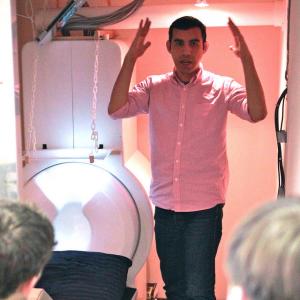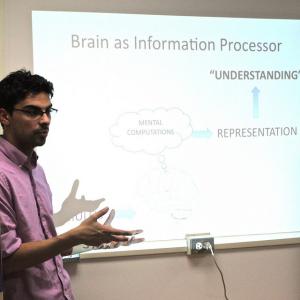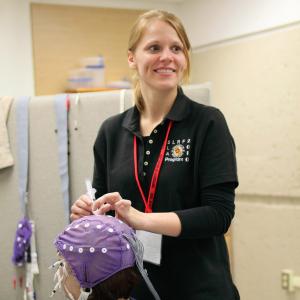Dissertation defense: Ben Rickles (NACS)
**Note room change!**
Zoom link: https://umd.zoom.us/j/
EEG effects of event models in story comprehension
Abstract: Stories are important to us and cognitive models of narrative comprehension promise insights into how stories are understood. Models which follow event segmentation theory (EST) are one set of promising models. EST focuses on the processing of brief episodes or events within a narrative and the boundaries between events. To test the brain mechanisms inspired by EST, we probed electroencephalographs (EEG) recorded around the event boundary from 49 participants as they were tasked with both listening to and recalling 9 blocks of ~6 minute-long audio clips in one of three conditions: single ordered stories, unrelated events from unrelated stories, or single stories in scrambled order. All stimuli were designed to contain event boundaries spaced at semi-regular intervals within each block. Accuracy during an inference recognition task administered after each block was highest in the single ordered stories condition. Analysis 1 examined the effects of event boundary vs. local semantic context on evoked negativities (N400) related to lexical processing of each word. Effects of condition suggest that narrative structure affected lexical processing, more so than event-level structure and sentence-level semantic context. Analysis 2 Examined changes in alpha (8.5-12.5 Hz) and theta (4-8 Hz) band power of the EEG induced by the onset of the event boundary. Boundary-induced changes in both frequencies were recorded, in all conditions. How these findings relate to cognitive mechanisms suggested by event segmentation theory is discussed.












